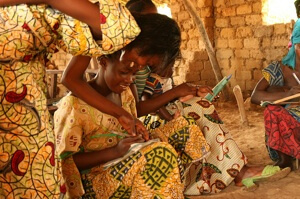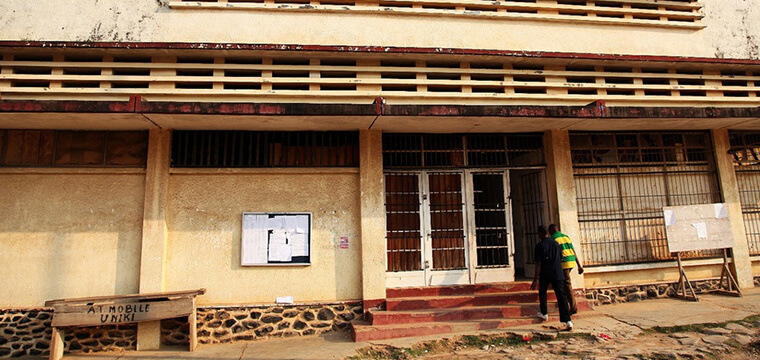 Supporting
Supporting
smart students
Legény Numbi Shaka has recently started his own project. He had the brilliant idea to convince the local radio station KFM to let him do his own show with a quiz for various schools of Maniema. He said he wanted to make the children curious, to read books and newspapers and to make them eager to learn a lot, so that they can develop a critical opinion. For him it was only possible to start this personal project, because as a scholar of Studying without Borders he doesn't have to pay for his tuition fees and consequently doesn't have to spend his free time working.
Necessity
Students who cannot afford to study
Activity
Tuition fees are paid and the development of the students' projects is supported
Countable effort
Number of students whose tuition fees can be paid
Result
Number of students achieving a higher level of education and number of students successfully implementing their own projects
Systemic effect
Improved educational opportunities for young people in need, encouraging initiative, reaching people through further multiplier effect of the scholars
Background
The Democratic Republic of the Congo has suffered greatly from the civil wars between 1996 and 2003. Kindu the capital of Maniema province in the eastern Democratic Republic of the Congo, where the project is located was particularly affected by the wars. Large parts of Kindu were occupied during five years by various rebel troops. Poverty and unemployment are very high in Kindu. Despite a size of about 200,000 inhabitants, most of Kindu resembles a large bush village. The poor accessibility makes all not locally produced goods very expensive. A large part of the population suffers from under nutrition.
The town is accessible only by plane or with the old diesel train from Lubumbashi, which needs about a month for 1,500 km. There are no paved roads and the existing mud roads end after a few kilometres, because most of the bridges have been destroyed during the war. Consequently, professors of the university often have to be flown in to teach. This is a major reason why education is so expensive. Many young people can therefore not afford to study. At the same time, it is crucial for a region in a post conflict situation like in the Kindu to have skilled young people that help rebuilding the region.
The good deed
Through the scholarship programme, young people are encouraged to develop their own projects that they can fully implement after their graduation. This way they contribute to the reconstruction of their home country. Scholars are not only students but also act as multipliers of their own education and knowledge. The idea is that the entire region benefits from the support.
Challenge
Decades of development policy practice have installed dependency mentalities. To convince the scholars that they themselves have the potential to contribute to the reconstruction of their home country and that they are not exclusively dependent on "outside" aid, constitutes a major challenge.

AboutDemocratic Republic of the Congo
Kinshasa
Capital
67,514,000 (2013)
Number of inhabitants
237
Gross domestic product per capita per year
186
Human Development Index
The second largest country of the continent, located in the heart of Africa. Despite the immense mineral wealth of the country, it is among the poorest countries in the world.
About the organization and further information
Association
Studying without borders Germany e.V.
Transparent Civil Society Initiative Award in Germany: Land of Ideas 2010 Ashoka Coaching Fellow




